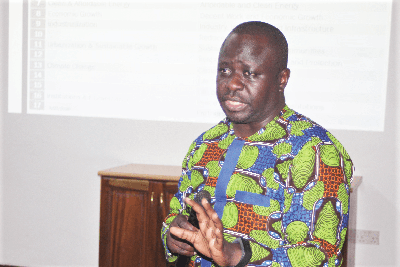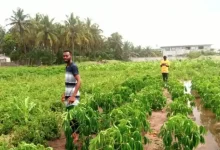
The Ghana Statistical Service (GSS) has identified a number of geographical areas in the country that are likely to be hit hard, in case the coronavirus (COVID-19) infections escalate across the country.
Among the areas are Subin in Kumasi Metropolis, Shama in the Western Region, Weija-Gbawei in the Greater Accra Region and Ketu South.
This is because they have large proportion of older people who are 60 years plus, a risk factor for the COVID-19 infection.
The Government Statistician, Professor Samuel Kobina Annim, who disclosed these to the Ghanaian Times in an interview last Wednesday, said the GSS had created a “dashboard” to inform policy toward containing the spread of the disease.
He said the dashboard provided “a data supply infrastructure that is critical in the fight against the COVID-19.”
Among the 16 indicators used to generate the data to inform decision making in the fight against the pandemic were the number of older persons in the household, households with a smoker, household size and number of rooms, hand washing soap and other sanitary facilities available.
Prof. Annim added that the GSS data would complement data from the Ghana Health Services and other existing national data to determine hotspots within the country that were likely to be heavily hit by the COVID-19 pandemic.
Although the risk factors for COVID-19 infection abounds in the population in every geographical area, evidence suggest that older persons with underlying health conditions as heart disease, asthma, diabetes, and chronic lung diseases were most at risk of the disease.
At the last count, 641 people in Ghana across ten regions are confirmed COVID-19 positive, with eight deaths.
Greater Accra Region, Greater Kumasi Metroplitan Area and Awutu Senya East Municipality in the Central Region are under lockdown (restricted movement) as part of measures to control the spread of the disease.
The COVID-19 which originated from Wuhan in China has engulfed the whole world and fast claiming lives.
It is fast spreading through droplets from coughing and sneezing by infected persons and comes with severe difficulty in breathing, dry cough, tiredness and fever.
In the absence of cure and vaccine, people are encouraged to practice good respiratory hygiene, observe social distancing, wash hands regularly with soap under running water and use alcohol-based sanitiser to avoid contracting the disease.
END







